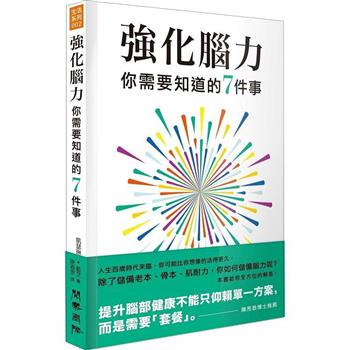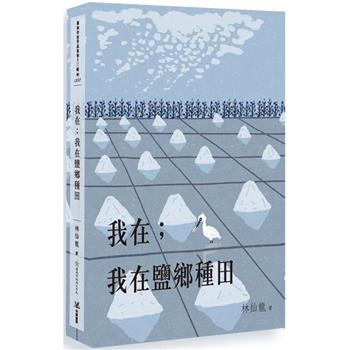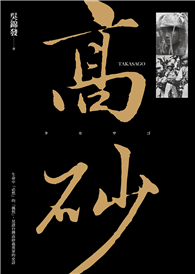Details integrated sustainable designs for energy and environmental engineering as well as computer science. Discusses the key components of energy as well as the main elements of sustainability. Covers smart computational technologies in the domain of energy and environmental systems engineering using case studies.
| FindBook |
|
有 1 項符合
Sustainability in Energy and Environment: Engineered Materials and Smart Computational Techniques的圖書 |
 |
$ 13200 | Sustainability in Energy and Environment: Engineered Materials and Smart Computational Techniques
出版社:Apple Academic Press 出版日期:2024-11-29 語言:英文 規格:精裝 / 284頁 / 23.34 x 15.57 cm / 普通級/ 初版  看圖書介紹 看圖書介紹
|
|
|
內容簡介
作者簡介
Ann Rose Abraham, PhD, is currently an Assistant Professor at the Department of Physics, Sacred Heart College (Autonomous), Thevara, Kochi, Kerala, India. She has expertise in the field of condensed matter physics, nanomagnetism, multiferroics and polymeric nanocomposites, etc. She has research experience at various reputed national institutes, including Bose Institute, Kolkata, India; SAHA Institute of Nuclear Physics, Kolkata, India; and UGC-DAE CSR Centre, Kolkata, India. She has collaborated with various international laboratories. She is a recipient of a Young Researcher Award in Physics and Best Paper Awards-2020, 2021. She served as Assistant Professor and Examiner at the Department of Basic Sciences, Amal Jyothi College of Engineering, under APJ Abdul Kalam Technological University, Kerala, India. Dr. Abraham is a frequent speaker at national and international conferences. She has a good number of publications to her credit in many peer-reviewed high impact journals of international repute. She has authored many book chapters and edited more than 10 books with Taylor and Francis, Elsevier, etc.
Heru Susanto, PhD, is a researcher at the Center for Innovative Engineering in the School of Business at the University of Technology, Brunei. He is also a senior researcher of the Data and Information Security Group at the National Research and Innovation Agency. At the same time, he is also an honorary professor in the Department of Information Management, College of Management, Tunghai University, Taichung, Taiwan. Dr. Susanto has experience as an IT professional and as web division head at IT Strategic Management at Indomobil Group Corporation. He has worked as the Prince Muqrin Chair for Information Security Technologies at King Saud University, Riyadh, Saudi Arabia. His research interests are in the areas of information systems, computer security, information security management systems, and information systems and technology as an enabler of organizations’ business process re-engineering, and e-marketing. He has over 15 years of professional teaching and research experience at the university level and over 20 years of working experience on research for various studies in the field. He has published more than 140 publications, including seven authored books and 60 book chapters and more than 65 international publications in peer-reviewed journals and proceedings in Scopus, Science Direct, Springer, ISI, etc.
A. K. Haghi, PhD, is a retired professor with over 250 academic research-oriented books as well as over 1000 research papers published in various journals and conference proceedings with over 3350 citations and h-index of 30, according to the Google Scholar database. He is currently a Senior Material Engineering consultant in the UK. Professor Haghi has received several grants, consulted for several major corporations, and is a frequent speaker to national and international audiences. He is Founder and former Editor-in-Chief of the International Journal of Chemoinformatics and Chemical Engineering and Polymers Research Journal. Professor Haghi has acted as an editorial board member for many international journals. He has served as a member of the Canadian Research and Development Center of Sciences & Cultures and the Research Chemistry Centre, Coimbra, Portugal. He has supervised several PhD and MSc theses at the University of Guilan and co-supervised international doctoral projects. Professor Haghi holds a BSc in urban and environmental engineering from the University of North Carolina (USA), and holds two MSc degrees, one in mechanical engineering from North Carolina State University (USA) and another one in applied mechanics, acoustics, and materials from the Université de Technologie de Compiègne (France). He was awarded a PhD in engineering sciences at Université de Franche-Comté (France).
Kian Hariri Asli is a research scholar in the Department of Electronic Engineering, University of Rome ""Tor Vergata,"" Rome, Italy. He has expertise in electronic and control engineering. He works towards the development of energy saving by networked sensors, fuzzy logic, artificial intelligence (AI), and Internet of Things (IoT) based on geospatial information systems (GIS).
|











